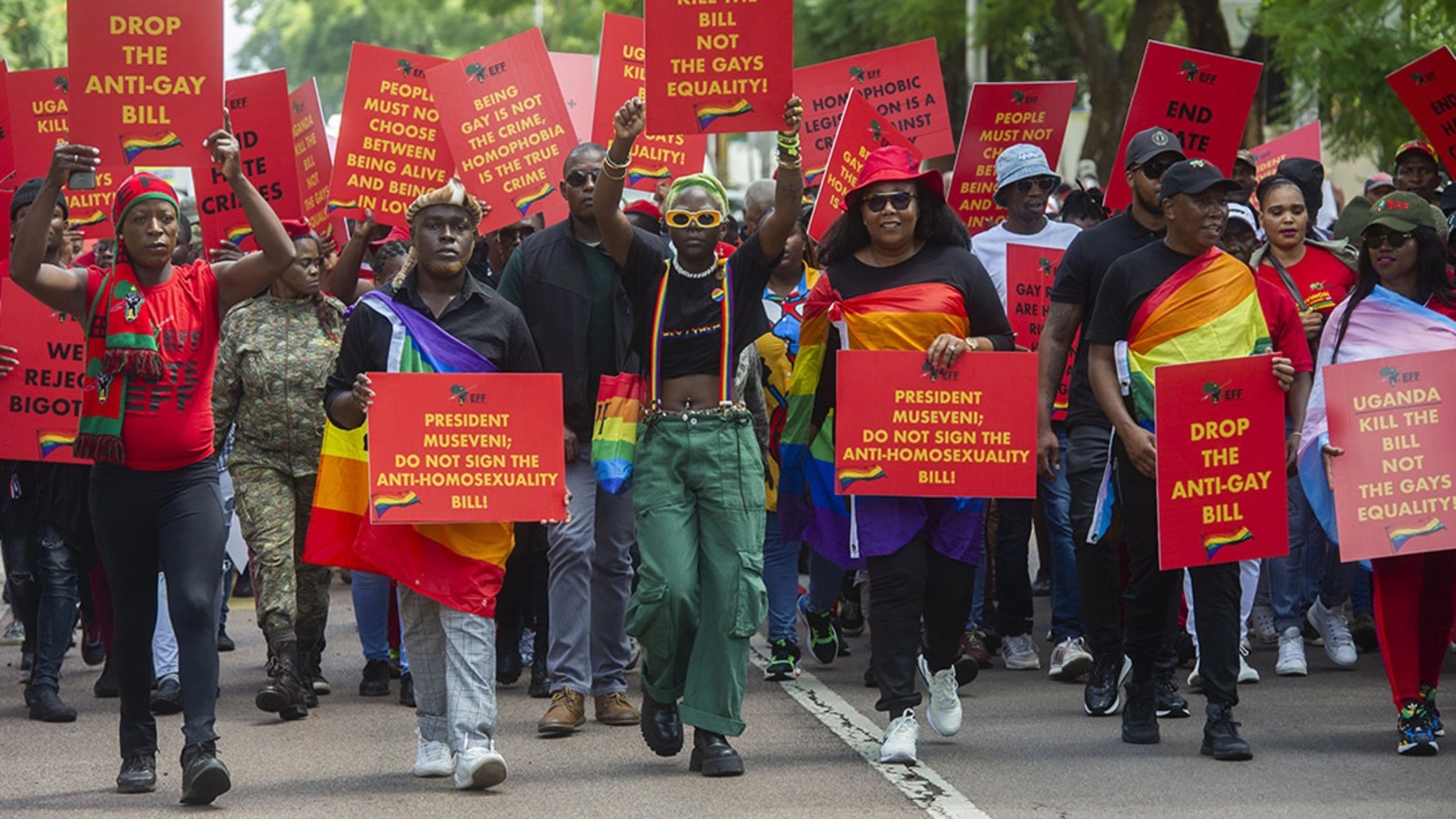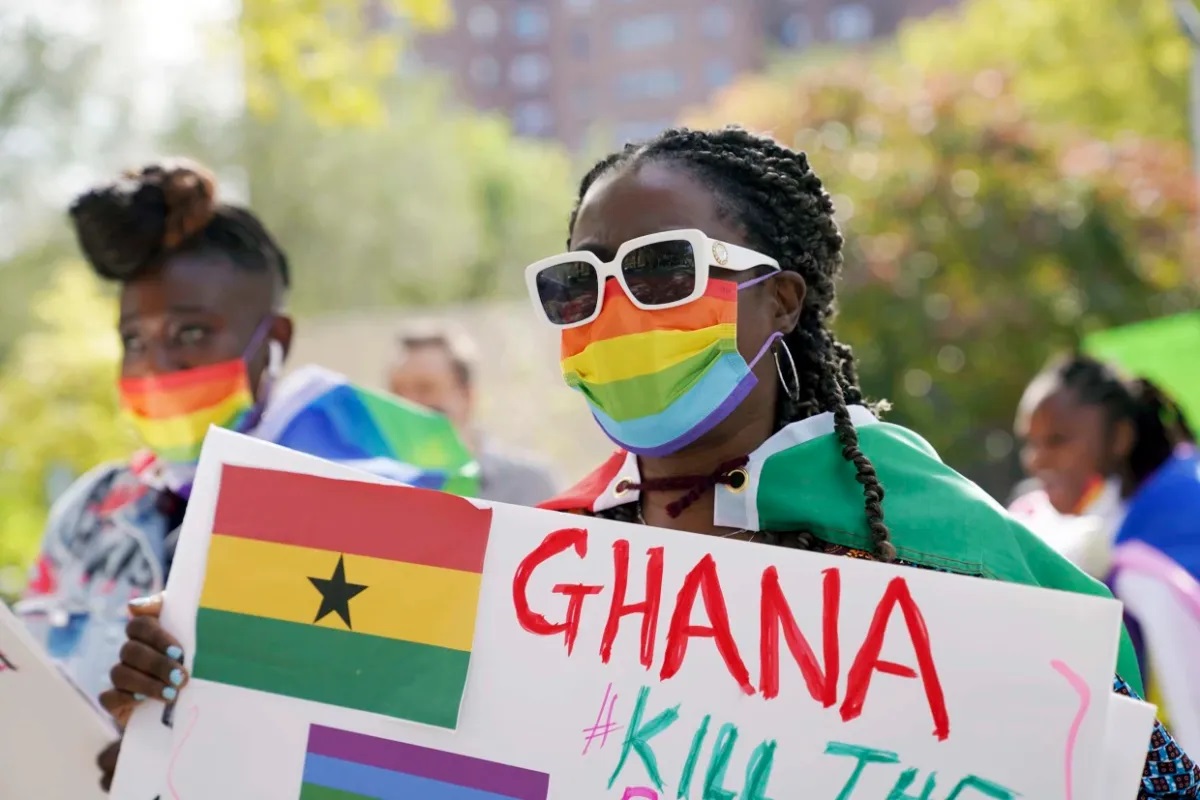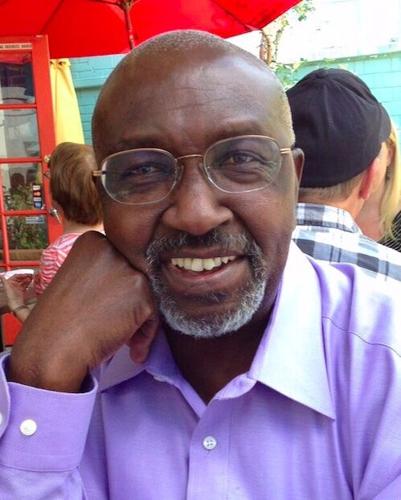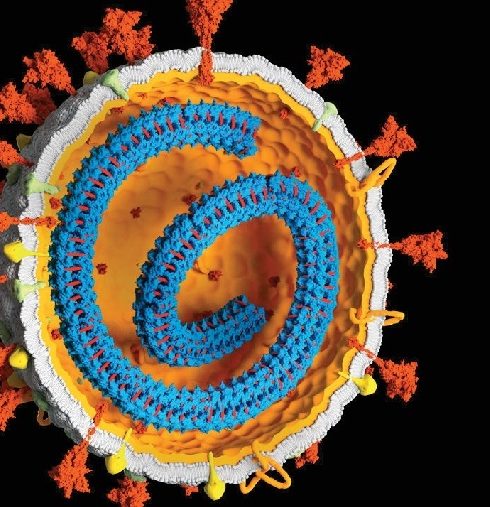Africa, a continent known for its vibrant cultures and rich traditions, is also grappling with a complex and often contentious debate surrounding LGBTQ rights. While some countries have made strides in recognizing and protecting the rights of same-sex couples, others continue to uphold discriminatory laws and practices. This article explores the multifaceted issue of LGBTQ rights in Africa, examining the challenges faced by individuals and organizations advocating for equality, the cultural and religious factors influencing public opinion, and the potential for progress in this evolving landscape.

Protesters picket against Uganda’s anti-gay bill at the Uganda High Commission in Pretoria, South Africa. Credit-CRF
Challenges Faced by LGBTQ Individuals and Organizations
LGBTQ individuals in Africa often face significant challenges, including discrimination, harassment, and violence. In many countries, same-sex sexual activity is criminalized, leading to arbitrary arrests, imprisonment, and even physical abuse. These discriminatory laws not only violate human rights but also create a climate of fear and intimidation that prevents LGBTQ people from living openly and authentically.
Just recently, Brenda Biya, the daughter of Cameroon’s President Paul Biya reignited the debate on the criminalization of homosexuality in many African countries. The president’s daughter set off a firestorm of reaction in Cameroon when she shared pictures on social media of herself kissing her girlfriend and expressing her wish for them to live in harmony as a couple. She said LGBTQ people in Cameroon should be spared violence and brutality.
Brenda Biya, the 26-year-old daughter of Cameroon’s president, Paul Biya, said she has received what she calls tons of insults as well as congratulatory messages since revealing her sexual preference.
Organizations advocating for LGBTQ rights in Africa are working tirelessly to challenge these discriminatory laws and promote greater acceptance and equality. However, they often face obstacles such as limited resources, lack of support from governments, and opposition from religious and cultural leaders. Additionally, the stigma associated with homosexuality can make it difficult to mobilize public support for LGBTQ rights.
Cultural and Religious Factors
Cultural and religious factors play a significant role in shaping attitudes towards LGBTQ rights in Africa. Many African cultures have deeply rooted traditions and beliefs that do not recognize or accept same-sex relationships. These cultural norms can be reinforced by religious teachings, particularly those of Christianity and Islam, which often condemn homosexuality.
However, it is important to note that not all African cultures or religious traditions are inherently hostile to LGBTQ individuals. There is a growing movement within some religious communities to promote greater acceptance and inclusivity. Additionally, some African cultures have historically recognized diverse gender identities and expressions, suggesting that there is potential for a more nuanced understanding of sexuality and gender.

An LGBTQ pro-supporter protesting in Ghana. Credit-Afrique TV
The Potential for Progress
Despite the challenges, there are signs of progress in the fight for LGBTQ rights in Africa. In recent years, several countries have taken steps to decriminalize same-sex sexual activity and introduce more inclusive laws. Additionally, the growing visibility of LGBTQ individuals and organizations is helping to raise awareness and challenge discriminatory stereotypes.
To achieve a lasting change, governments must play a leading role in enacting and enforcing laws that protect LGBTQ rights. This can save them from embarrassment as in the case of Paul Biya. He quickly realized rain could fall on anyone’s house, even at the king’s palace.
Paul Biya’s administration has been brazenly opposed to the LGBTQ community in Cameroon for as long as anyone can remember, but there has been no word from him or any of his aides or spokesmen on the issue of his daughter’s revelation.
At the same time, several countries have moved toward more inclusive policies, especially in the southern region. South Africa, for example, was the first country in the world to prohibit discrimination of LGBTQ+ populations in its constitution, and Angola, Botswana, and Mozambique have all decriminalized homosexuality in the last decade. Most recently, in May 2023, the Supreme Court of Namibia ruled to recognize same-sex couples who marry abroad.
Civil society organizations need to continue their advocacy efforts and build coalitions to amplify their voices. Religious leaders should be encouraged to promote more inclusive interpretations of their teachings. And individuals must be empowered to speak out against discrimination and prejudice.
The journey towards LGBTQ equality in Africa is far from over. But by addressing the challenges, harnessing the potential for progress, and fostering a culture of respect and understanding, it is possible to create a more inclusive and equitable future for all.






